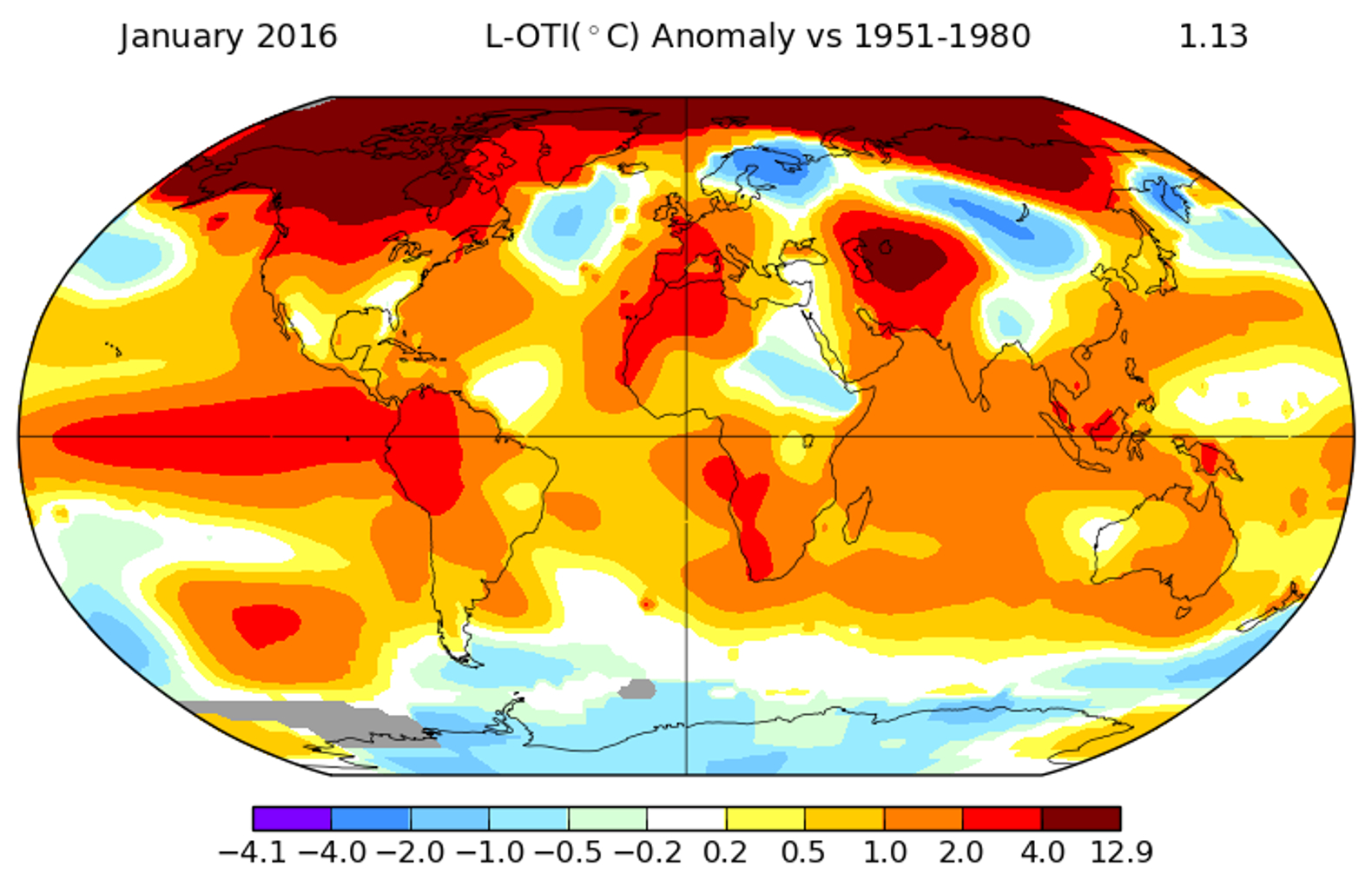What is polar amplification and why is it an important concept?
1 Answer
Polar or arctic amplification refers to the increased rate at which the Arctic is warming compared to the rest of the planet and it is important for a few reasons.
Explanation:
What is it?
Polar or arctic amplification refers to the increased rate at which the Arctic is warming compared to the rest of the planet. The Arctic warms at a faster rate than the rest of the planet due to the positive feedback loops that occur when ice and snow is lost.
There are greater temperature anomalies (deviations from what is normal) across the north pole than elsewhere:

Snow and ice reflect light. When we lose ice in the Arctic, it is replaced with sea water. Sea water is dark and it absorbs more light than the snow and the ice did. This increases warming because less energy is being reflected and more is absorbed.
Why is it important?
Climate models, or predictions of what the climate is expected to look like in the future, show substantial levels of arctic amplification in the near future. Scientists typically agree that the Arctic has recently been warming twice as fast as the average for the rest of the globe (Screen & Simmons, 2001; Cowtan & Way, 2014). Thus, when considering averages in global temperatures, it is important to remember that the Arctic is presently warming at a much greater rate.
To read more check out this link or this one.
Works cited:
Cowtan, K., & Way, R. G. (2014). Coverage bias in the HadCRUT4 temperature series and its impact on recent temperature trends. Quarterly Journal of the Royal Meteorological Society, 140(683), 1935-1944.
Screen, J. A., & Simmonds, I. (2010). The central role of diminishing sea ice in recent Arctic temperature amplification. Nature, 464(7293), 1334-1337.

